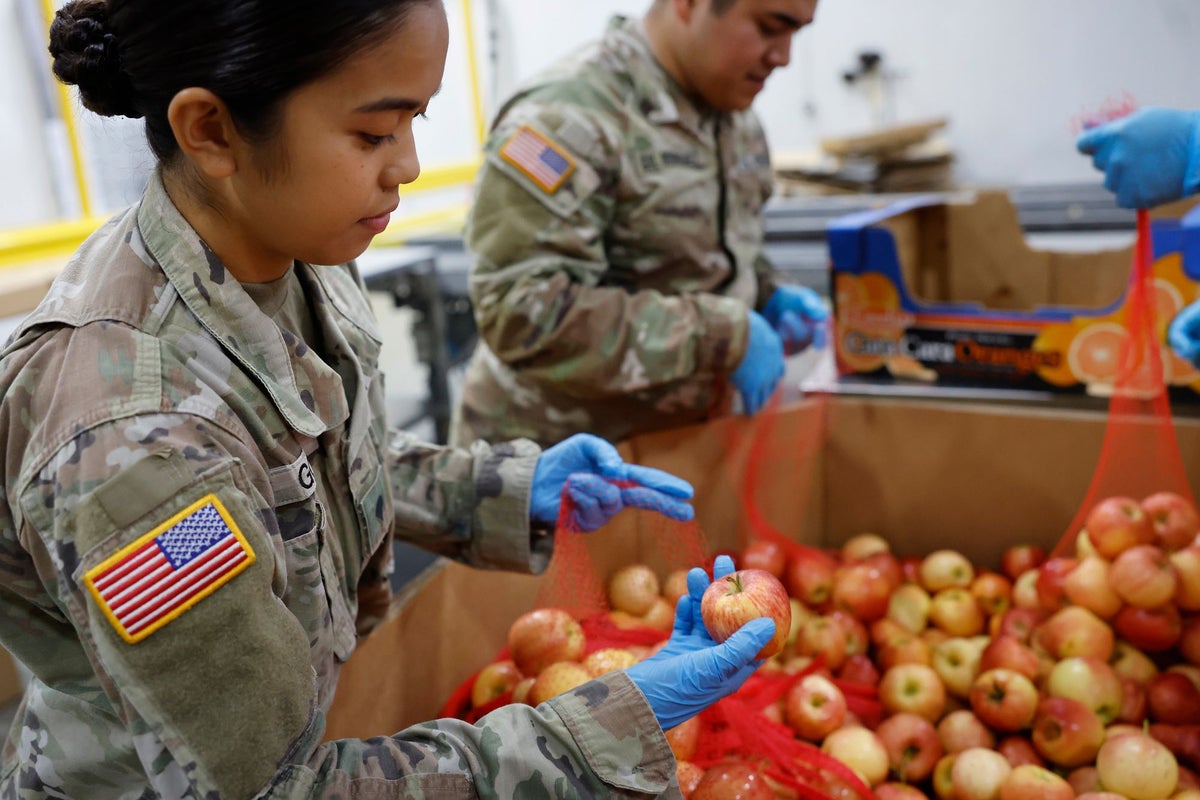
A member of President Donald Trump’s first administration has claimed that the commander-in-chief “doesn’t give a s***” about funding for the Supplemental Nutrition Assistance Program running out at midnight on Friday as a result of the ongoing government shutdown.
SNAP benefits, otherwise known as food stamps, are given to around 41.1 million Americans monthly, according to the Department of Agriculture, but, as it stands, will not be available in November as Agriculture Secretary Brooke Rollins says she does not have the $8 billion needed to pay for it and is legally barred from dipping into a contingency fund.
Miles Taylor – who served as deputy chief of staff for the Department of Homeland Security in 2019 and was subsequently unmasked as the author of an anonymous op-ed in The New York Times attacking the administration – lashed out over the impasse on X.
“I was part of the internal Trump administration team trying to convince the president to end the shutdown in 2018-2019 – for 35 days – before people went hungry, workers lost pay, and government services collapsed,” Taylor wrote. “Here’s what I learned: he doesn’t give a s***.”
White House spokesperson Abigail Jackson told The Independent that the comments only provide “further proof that Miles Taylor’s entire identity is being a TDS [Trump Derangement Syndrome] clown.
“If he actually cared about workers being paid and families receiving benefits, he would urge Democrats to reopen the government – just like the president has been doing. Democrats could end the shutdown today but Miles is too blinded by his TDS rage to accept the truth.”
After leaving the administration, Taylor published a book about his experiences entitled A Warning (2019), endorsed Joe Biden in the 2020 presidential election and has since worked as a national security consultant while remaining a vocal critic of Trump.
The president was asked about the SNAP shortfall directly aboard Air Force One on Wednesday during his tour of the Far East and said only, “We’re gonna get it done,” without providing any more detailed reassurances.
A family of four on average receives $715 per month in food stamps, according to the Center on Budget and Policy Priorities, which comes in at just under $6 a day per person.
They are made available via reloadable debit cards that recipients use to pay for groceries, with the money administered by the states. Most states cannot afford to bankroll even a month’s worth of SNAP payouts from their own budgets and the USDA has said they would not be reimbursed if they did so.
The likes of California, Minnesota, New Mexico, New York, and Virginia have pledged emergency food programs to help with the current emergency but the situation nevertheless threatens to leave one in eight Americans forced to make difficult choices about their limited household budgets, in many cases having to divert funds away from their rent, heating or medical prescriptions to buy food.
“They are going to face an immense drop in their ability to put food on the table,” Ed Bolen, director of state SNAP strategies for the CBPP, told CNN. “They’re going to skip meals. They’re going to substitute foods. They’re going to have to turn elsewhere.”
Democrats on Capitol Hill have argued that the USDA’s refusal to use its $6 billion contingency fund to keep the program going is illegal and that argument is now being pressed in a lawsuit filed by Democratic attorneys generals from 25 states and the District of Columbia.
“Shutting off SNAP benefits will cause deterioration of public health and well-being,” the lawsuit reads. “The loss of SNAP benefits leads to food insecurity, hunger, and malnutrition, which are associated with numerous negative health outcomes in children, such as poor concentration, decreased cognitive function, fatigue, depression, and behavioral problems.”
This coming Saturday marks not just the end of SNAP funding but also the introduction of strict new work requirements dictating who can and cannot receive the benefits, introduced by Trump’s “One Big, Beautiful Bill” earlier this summer, but also the one month anniversary of the shutdown, which is already the second-longest in American history after the 35-day outage alluded to by Taylor.
Republicans continue to blame Democrats for refusing to agree to a new spending bill to end the deadlock while declining to meet them halfway on the help they are seeking for citizens facing rising health insurance premiums.
